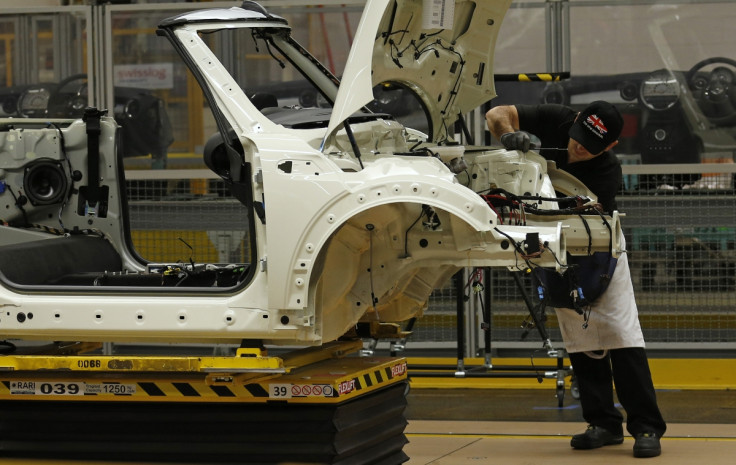UK car industry slams on the brakes as production plummets 10%
Industry warns of potential £4.5bn hit post-Brexit amid worries of increasing custom costs.

Britain's car manufacturing industry slammed on the brakes in May as production fell by almost 10%, driven lower by a sharp decline in domestic demand.
According to data published by the Society of Motor Manufacturers and Traders (SMMT), 136,119 new cars were built last month, down 9.7% year-on-year and marking the second consecutive month of decline, with the industry blaming the timing of Easter for the steep decrease recorded in April.
The figure is in stark contrast with what was recorded in May last year, when the industry recorded a 26% increase in production.
On a year-to-date basis, however, the decline was more contained, as 729,755 cars were built, a 1.2% drop compared to May last year.
The report showed a sharp drop in the number of cars built for the British market was the main driver behind the decline. Production of vehicles destined for British roads declined 12.8% year-on-year and slipped 8.1% on a year-to-date basis to 153,199 units.
The picture was slightly less bleak for the export market, with production of cars destined to be sold abroad declining 9% on annual basis last month but edging 0.8% higher in the first five months of the year to 576,566 cars.
The uncertainty surrounding Britain's post-Brexit future and the squeeze on households triggered by the falling pound and rising inflation have largely been blamed for the decline in demand. However, the SMMT added that the drop was exacerbated by being up against tough comparatives, given the industry recorded the best performance in a decade in May of last year.
"After a record start to the year, car production in the UK has slowed as production lines gear up for a range of new models," said SMMT chief executive Mike Hawes.
"Global demand is strong and exports remain the driving force for British car production volumes in the UK."
The decline in domestic demand also highlights the importance of the foreign market for British car-makers, which export 80% of total production, most of which is to the EU. The industry has been among the most vocal in urging the government to secure a good trade deal with the bloc post-Brexit, warning that an increase in import and export tariffs could have serious consequences.
According to the SMMT, added costs such as customs and red tape would see the price of a car sold in Britain rise by approximately £1,500 and result in a combined £4.5bn hit to the industry.
"Maintaining our current open trade links with Europe, our biggest market, and further developing global markets is vital for this sector," Hawes added.
© Copyright IBTimes 2024. All rights reserved.






